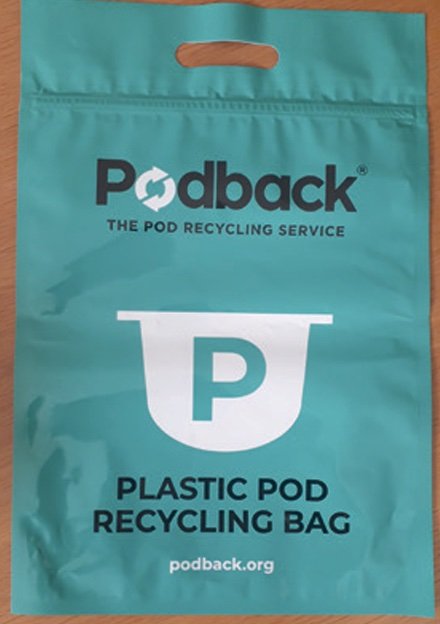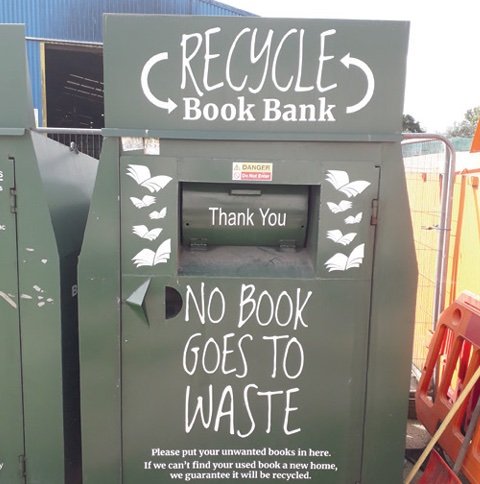Podback was created to give lovers of pod coffee simple and convenient ways to recycle, and is funded by the coffee manufacturers and supermarkets, but they have changed their funding of the schemes.
Until recently you could download a label from the Podback website and drop your pods off locally to be recycled. So, how can you recycle your coffee pods now? They are all detailed on the Podback website. Here is a resume:
Nespresso
Recycle your capsules through Nespresso’s partnership with Royal Mail, with two convenient options. Doorstep Collection: Schedule a pick-up from your doorstep. Drop off: Download a QR Code and take your Podback bag to any of 14,000+ Royal Mail locations.
Tassimo and all other coffee pods
The free Yodel returns service is no longer be available. You will need to use the Podback.org website Recycle Checker to find your nearest local drop-off location, the only option open to you now. What this means is the nearest drop off points are Tesco Burgess Hill, Lewes or Horsham or Asda in Crawley or Brighton.
Podback does work with local authorities, over 200 local authorities, and if you live in Horsham or Chichester Council areas then all your Coffee pods can be recycled as part of the councils kerbside service, for free.
You can now recycle all your coffee pods in the new bay at Recycling Centres. At Burgess Hill you will find it on the lower level on the right as you drive in.





































